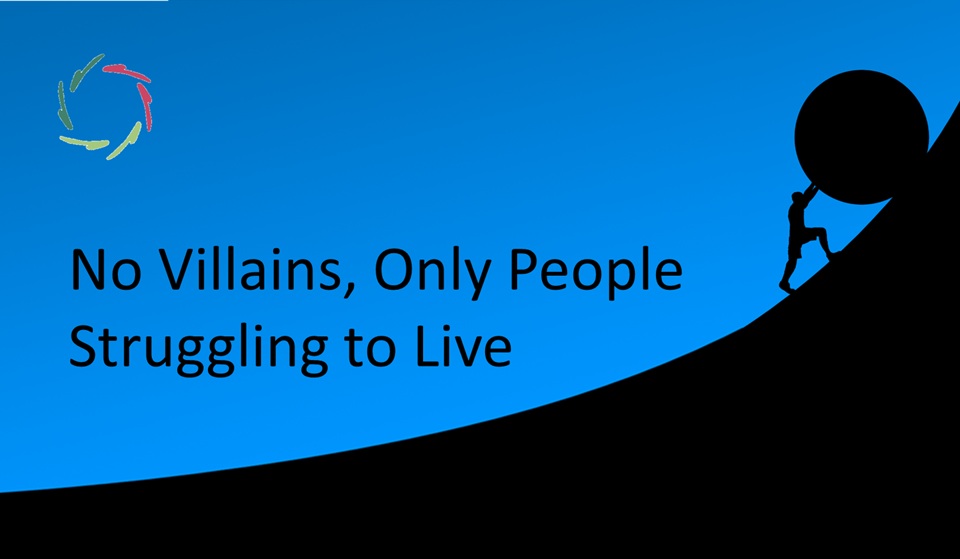Inside versus Outside the Poem

In challenging circumstances, not making a difference in either way can be catastrophic. We need the combination of rationality and depth to avoid this.
The poem
I consider ‘the poem’ as an analogy of anything poetic in art and even life. Anything mind-related can be seen from inside or outside this poem.
Since the human brain is made for poetry and since anything we do, we do with our mind being present, this is always pertinent:
- The mind view is like artful patterns ― poetic.
- The body view is like paint (molecules) ― not poetic.
The artist and the chemist can both say meaningful things about what is itself not divided into art and chemistry: the total human being.
There is an inside and an outside of the poem.
One can be here or there. So far, so good. However, if one is inside the poem while thinking to be outside, problems arise. Likewise, with the opposite: outside thinking to be inside (or, in this case, assuming there is only an outside).
Let’s denote the former erroneous thinking as I←O, and the latter as O←I.
The tower and the swamp
Politically, one can see a proneness for the ivory tower at the right, for the swamp at the left of the spectrum.
Likewise, it is obvious what tower and swamp denote in medicine. The swamp is full of I←O: the ivory tower contains a lot of O←I. This is not good. Unfortunately, modern Western medicine is an excellent example of being stuck in the ivory tower. I have written about this amply in other blog essays. Not surprisingly, when not letting the poetic side – a crucial part of life – enter through the front door, it enters the building through the backdoor.
Exaggerated O←I invites I←O.
For instance, through the placebo, in many covert ways of which much is still not properly investigated, let alone understood.
We should get rid of CAM. We should also get rid of the swampy parts within the tower, if only for the sake of proper science.
Towards extremes
Being outside of the poem, thinking there is no poem – or no poem worthy of considering – leads to dissociation from one’s ‘deeper self.’ This is a lack of depth.
Being inside the poem while thinking to be outside of it leads to a kaleidoscope of weird and weirder and even the weirdest possible ideas.
Both are not statistically uncommon, even if frequently ‘hidden in plain sight’ in politics, business life, etc. Both can lead to feelings of depersonalization. The ‘normal’ state of mind lies between these two kinds of depersonalization.
At the far extremes, the former goes to depression, while the latter goes to psychosis.
The solution: transcending both
This is not about mingling one with the other. ‘Transcending’ dissolves what was present before ― without asking people to be super-human. We are error-prone, and much beauty lies precisely in this. Still, we should mind the gaps on both sides of the spectrum. They are two abysses in which much can disappear, including people.
Look at this world and see what I mean, again and again and again.
AURELIS USP of rationality and depth.
Valuing the poetic while valuing the conceptually scientific is extremely important ― and a huge challenge.
AURELIS is an attempt to get this realized.


